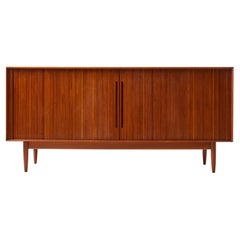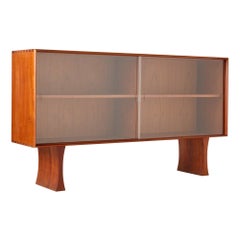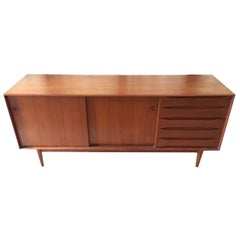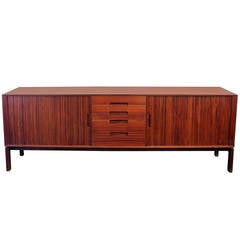Johannes Aasbjerg Teak Credenza
Vintage 1960s Danish Credenzas
Wood
21st Century and Contemporary Danish Credenzas
Wood
Recent Sales
Vintage 1960s Danish Scandinavian Modern Credenzas
Teak
Vintage 1960s Danish Mid-Century Modern Credenzas
Teak
20th Century Danish Scandinavian Modern Credenzas
Teak
Vintage 1960s Danish Mid-Century Modern Credenzas
Brass
Mid-20th Century Danish Mid-Century Modern Credenzas
Teak
Vintage 1960s Danish Scandinavian Modern Credenzas
Mid-20th Century Danish Scandinavian Modern Credenzas
Glass, Teak
Mid-20th Century Danish Scandinavian Modern Credenzas
Teak
20th Century Danish Credenzas
Teak
Vintage 1960s Danish Scandinavian Modern Credenzas
Teak
20th Century Danish Scandinavian Modern Credenzas
Felt, Oak, Teak
Vintage 1950s Danish Scandinavian Modern Credenzas
Teak
Vintage 1950s Danish Scandinavian Modern Credenzas
Teak
Vintage 1950s Mid-Century Modern Credenzas
Teak
Vintage 1960s Danish Scandinavian Modern Credenzas
Glass, Teak
Vintage 1960s Danish Scandinavian Modern Credenzas
Teak
Vintage 1960s Danish Mid-Century Modern Sideboards
Teak
People Also Browsed
2010s South African Minimalist Pedestals
Wood, Poplar, Burl
Vintage 1960s German Mid-Century Modern Flush Mount
Brass
Mid-20th Century Swedish Mid-Century Modern Wall Lights and Sconces
Crystal, Brass
2010s American Table Lamps
Brass
21st Century and Contemporary Indian Scandinavian Modern Russian and Sca...
Wool
20th Century Swedish Scandinavian Modern Dry Bars
Brass
Antique Early 19th Century German Biedermeier Commodes and Chests of Dra...
Walnut
Vintage 1950s Italian Mid-Century Modern Wall Mirrors
Mirror, Teak
Vintage 1960s Danish Mid-Century Modern Side Tables
Teak
Vintage 1950s American Mid-Century Modern Credenzas
Chrome
21st Century and Contemporary Indian Modern Benches
Oak, Walnut
Vintage 1960s Danish Scandinavian Modern Credenzas
Rosewood
Vintage 1930s Desks and Writing Tables
Chrome, Steel
Vintage 1970s Italian Mid-Century Modern Beds and Bed Frames
Brass
Mid-20th Century Swiss Mid-Century Modern Planters and Jardinieres
Concrete, Steel
Vintage 1970s German Mid-Century Modern Chandeliers and Pendants
Glass
Finding the Right Credenzas for You
Antique and vintage credenzas can add an understated touch of grace to your home. These long and sophisticated cabinet-style pieces of furniture can serve a variety of purposes, and they look great too.
In Italy, the credenza was originally a small side table used in religious services. Appropriately, credere in Italian means “to believe.” Credenzas were a place to not only set the food ready for meals, they were also a place to test and taste prepared food for poison before a dish was served to a member of the ruling class. Later, credenza was used to describe a type of versatile narrow side table, typically used for serving food in the home. In form, a credenza has much in common with a sideboard — in fact, the terms credenza and sideboard are used almost interchangeably today.
Credenzas usually have short legs or no legs at all, and can feature drawers and cabinets. And all kinds of iterations of the credenza have seen the light of day over the years, from ornately carved walnut credenzas originating in 16th-century Tuscany to the wealth of Art Deco credenzas — with their polished surfaces and geometric patterns — to the array of innovative modernist interpretations that American furniture maker Milo Baughman created for Directional and Thayer Coggin.
The credenza’s blend of style and functionality led to its widespread use in the 20th century. Mid-century modern credenzas are particularly popular — take a look at Danish furniture designer Arne Vodder’s classic Model 29, for instance, with its reversible sliding doors and elegant drawer pulls. Hans Wegner, another Danish modernist, produced strikingly minimalist credenzas in the 1950s and ’60s, as did influential American designer Florence Knoll. Designers continue to explore new and exciting ways to update this long-loved furnishing.
Owing to its versatility and familiar low-profile form, the credenza remains popular in contemporary homes. Unlike many larger case pieces, credenzas can be placed under windows and in irregularly shaped rooms, such as foyers and entryways. This renders it a useful storage solution. In living rooms, for example, a credenza can be a sleek media console topped with plants and the rare art monographs you’ve been planning to show off. In homes with open floor plans, a credenza can help define multiple living spaces, making it ideal for loft apartments.
Browse a variety of antique and vintage credenzas for sale on 1stDibs to find the perfect fit for your home today.
Read More
The Ultimate Guide to Types of Tables for the Home
Whether you’re just moving in or ready to give your home a makeover, our guide will give you pointers on tables that are fitting for every room, nook and hallway.
What Exactly Is a Secretary Desk, and What Is It Used For?
The furniture equivalent of a Swiss Army knife, it's the multifunctional piece you didn't know you needed.
This Shelving System with Oxidized Brass Tubes Is Retro and Futuristic at Once
Italian studio DimoreMilano mustered great ingenuity when crafting these sculptural shelves, which are built without any screws.
28 Cheerful Home Bars, Where Everybody (Literally) Knows Your Name
Simple or sophisticated, equipped with console, cart or custom cabinetry, these stylish bar areas deserve a toast.
Ask an Interior Designer: Work-from-Home Edition
Leaping into a design project, whether it's refreshing the bedroom or redoing the whole house, can be overwhelming. Luckily, we know more than a few interior designers. You asked questions on Instagram, and now they're answering.
Collected and Eclectic, ‘Wunderkammern’ Are Back in a Big Way
Introduced nearly 500 years ago, curiosity cabinets are finding new fans among today's collectors and designers.
Meet the Incredible Woman Transforming Fallen Trees into Sleek Furniture
In the hands of New York Heartwoods cofounder Megan Offner, unwanted local trees become works of design art.
These New York Architects Love a Complicated Project
From Brooklyn townhouses to Maine campgrounds, Trattie Davies and Jonathan Toews relish a challenge, like transforming a former warehouse space into the new 1stdibs Gallery.



